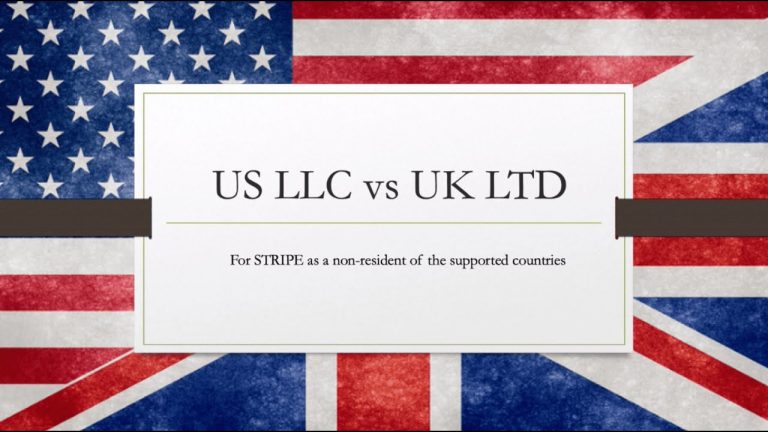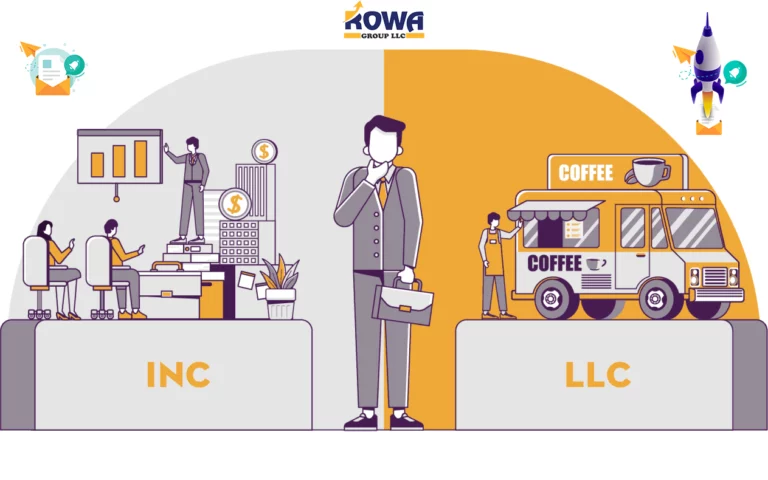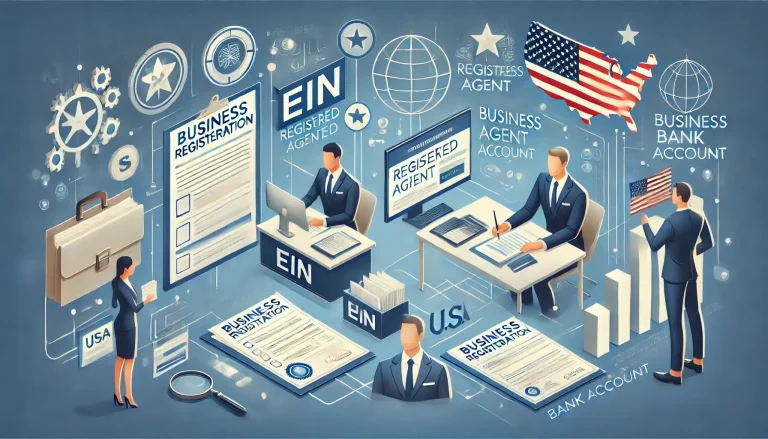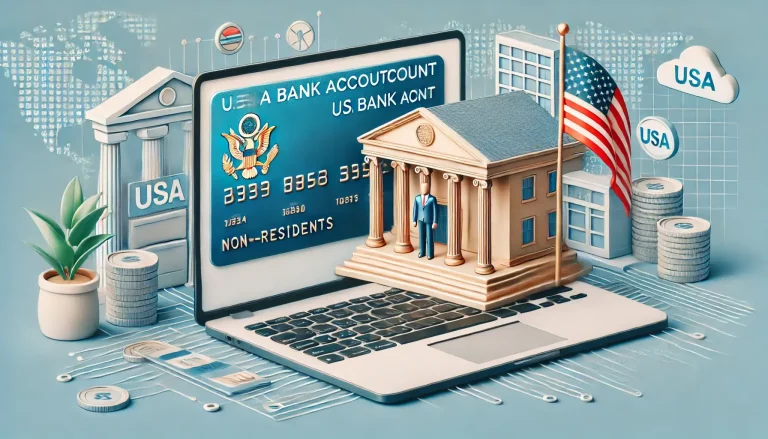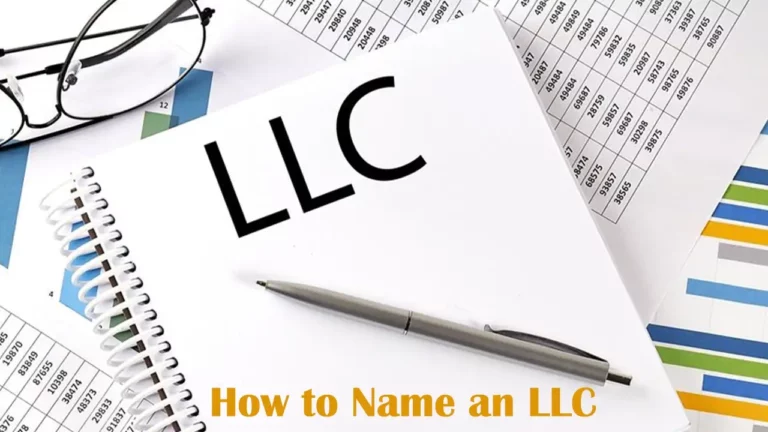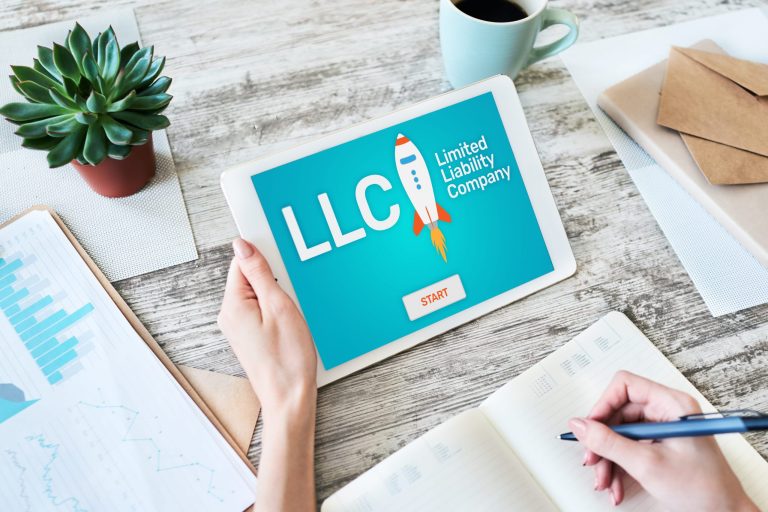Do I Need an EIN for My LLC?
An Employer Identification Number (EIN), sometimes referred to as a Federal Tax Identification Number, is a unique nine-digit number assigned by the Internal Revenue Service (IRS) to identify a business entity. Think of it as a Social Security Number for your business. It’s used primarily for tax purposes, but it also serves other functions, such as opening a business bank account or applying for business licenses.
Table of Contents
Who Needs an EIN? While the name “Employer Identification Number” suggests that only businesses with employees need one, that’s not entirely accurate. Various types of businesses, even those without employees, require an EIN. Here are some common scenarios where an EIN is necessary:
- Hiring Employees: If your LLC plans to hire employees, you must have an EIN.
- Operating as a Corporation or Partnership: Corporations and partnerships are required to have an EIN, regardless of whether they have employees.
- Filing Certain Tax Forms: Specific IRS tax forms, like those used for excise taxes or for employees’ retirement plans, require an EIN.
- Opening a Business Bank Account: Many banks require an EIN to open a business account.
- Applying for Business Licenses and Permits: Some licenses and permits necessitate an EIN.
Why is an EIN Important? The importance of an EIN extends beyond tax filing. It helps in establishing your business as a separate legal entity, which is crucial for protecting your personal assets. With an EIN, you can:
- Separate Personal and Business Finances: An EIN allows you to open a business bank account, which helps in keeping your personal and business finances separate—essential for maintaining your LLC’s limited liability status.
- Build Business Credit: Having an EIN is the first step in building a business credit profile, which is necessary for obtaining loans or credit lines.
- Simplify Tax Reporting: An EIN simplifies the process of filing taxes for your business, whether you’re handling it yourself or working with an accountant.
Case Study: A small business owner, Sarah, started her LLC to sell handmade crafts online. Initially, she operated as a sole proprietorship, using her Social Security Number (SSN) for tax purposes. As her business grew, she decided to hire a part-time employee. To comply with tax regulations, Sarah needed to obtain an EIN. After getting her EIN, she was able to open a business bank account, which made managing her business finances more straightforward and professional.
Key Takeaways:
- An EIN is essential for many business activities, even if you don’t have employees.
- It helps in protecting your personal assets by establishing your business as a separate entity.
- Having an EIN simplifies tax filing and financial management for your LLC.
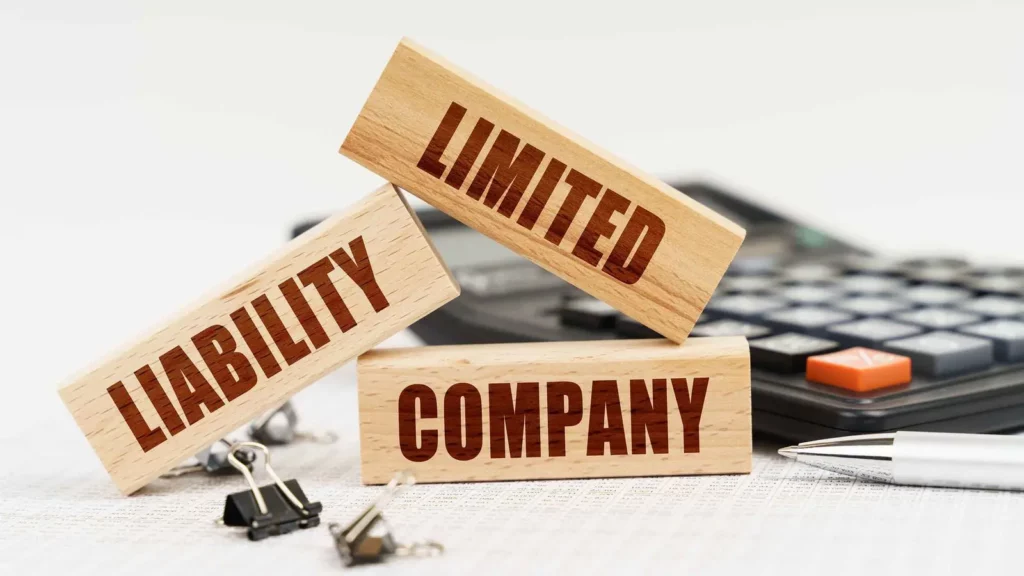
What is an LLC?
A Limited Liability Company (LLC) is a business structure that combines the flexibility of a partnership with the liability protection of a corporation. This structure is particularly popular among small business owners because it offers a straightforward way to protect personal assets while providing operational flexibility.
Key Characteristics of an LLC:
- Limited Liability Protection: One of the primary reasons business owners choose an LLC is for the limited liability protection it offers. This means that the owners, known as members, are not personally responsible for the company’s debts or liabilities. In the event that the business faces a lawsuit or incurs debt, the members’ personal assets (like their home or personal bank accounts) are generally protected.
- Flexible Taxation: LLCs are unique in that they offer flexibility in how they are taxed. By default, a single-member LLC is taxed as a sole proprietorship, while a multi-member LLC is taxed as a partnership. However, LLCs can also choose to be taxed as a corporation or S-corporation, depending on what is most beneficial for the business.
- Management Flexibility: LLCs can be managed by the members themselves (member-managed) or by appointed managers (manager-managed). This allows for a great deal of flexibility in how the business is operated.
- Pass-Through Taxation: Unlike corporations, LLCs typically benefit from pass-through taxation. This means that the business’s profits and losses pass through to the owners’ personal tax returns, avoiding the double taxation that affects C-corporations.
LLC vs. Other Business Structures:
| Feature | LLC | Sole Proprietorship | Corporation | Partnership |
|---|---|---|---|---|
| Liability Protection | Yes | No | Yes | No (in general partnerships) |
| Taxation | Flexible (can be taxed as sole prop, partnership, or corporation) | Personal Income Tax (Pass-Through) | Double Taxation (unless S-corp) | Pass-Through |
| Management Flexibility | High | High | Limited (Corporate formalities) | High |
| Complexity | Moderate | Low | High | Moderate |
| Number of Owners | Unlimited | One | Unlimited (unless S-corp) | Two or More |
Benefits of Forming an LLC:
- Limited Personal Liability: As mentioned earlier, one of the biggest benefits is the protection it offers to personal assets. This is especially important for small business owners who may not have significant resources to cover unexpected liabilities.
- Tax Flexibility: LLCs provide a wide range of options when it comes to taxation, allowing business owners to choose the method that best fits their financial situation.
- Ease of Formation and Maintenance: Unlike corporations, which require a board of directors, formal meetings, and extensive record-keeping, LLCs are relatively easy to form and maintain. This makes them an attractive option for entrepreneurs looking to minimize administrative burdens.
- Enhanced Credibility: Operating under an LLC can add credibility to your business, as it demonstrates a formal commitment to your venture. This can be beneficial when dealing with customers, suppliers, and lenders.
Case Study: John and Emily wanted to start a small online marketing agency. They were initially unsure about which business structure to choose. After some research, they decided to form an LLC because it offered the right balance between simplicity and protection. By forming an LLC, they were able to shield their personal assets from potential business liabilities while also enjoying the tax benefits that came with pass-through taxation. This structure allowed them to focus on growing their business without worrying about complex corporate formalities.
Key Takeaways:
- An LLC is a flexible and straightforward business structure that provides personal liability protection.
- It allows for various taxation options, making it adaptable to different financial situations.
- The ease of formation and management makes it a popular choice among small business owners.
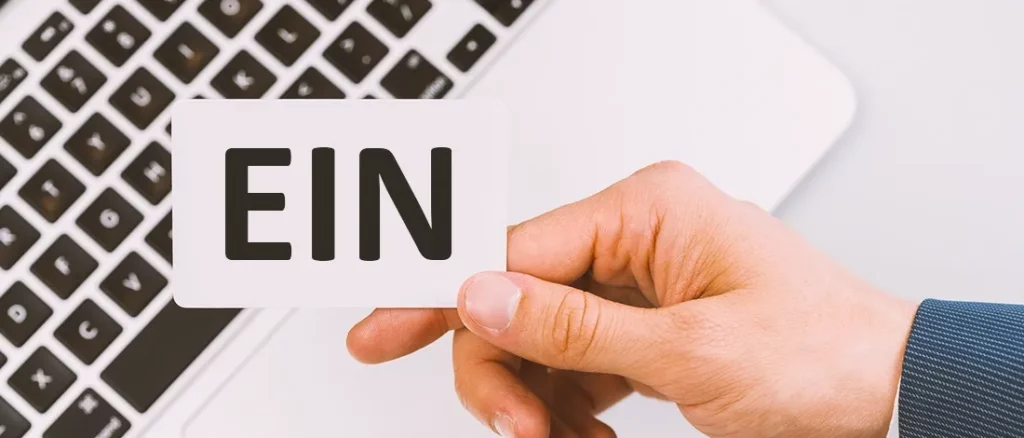
Do I Need an EIN for My LLC?
The question of whether you need an EIN for your LLC is one that many new business owners grapple with. The answer depends on several factors, including how your LLC is structured, what activities your business engages in, and your future plans for growth. In this section, we’ll explore when an EIN is required, when it might not be necessary, and why you might want to get one even if it’s not mandatory.
When is an EIN Required for an LLC?
- Hiring Employees: If your LLC plans to hire employees, obtaining an EIN is mandatory. The EIN is used to report payroll taxes to the IRS and to file forms related to employee income taxes. Even if you don’t have employees at the time of forming your LLC, planning for future growth might make getting an EIN a wise choice.
- Multi-member LLCs: A multi-member LLC, which is an LLC with more than one owner, is treated as a partnership for tax purposes unless it elects to be treated as a corporation. In this case, the IRS requires the LLC to obtain an EIN. This is necessary for filing the partnership’s federal tax return (Form 1065) and for reporting the income distributed to each partner.
- Filing Specific Tax Forms: There are certain tax forms that require an EIN, regardless of whether your LLC has employees or multiple members. For example:
- Form 8832: If your LLC chooses to be taxed as a corporation, you’ll need to file Form 8832 and provide an EIN.
- Form 2553: To elect S-corporation tax status, an LLC needs an EIN to file Form 2553.
- Opening a Business Bank Account: Many banks require an EIN to open a business bank account. This is because the EIN serves as a verification tool that helps the bank confirm the legitimacy of the business. Even if you’re a single-member LLC, having a business bank account is crucial for keeping your business and personal finances separate, which is essential for maintaining your limited liability protection.
- Applying for Business Licenses and Permits: Depending on your industry and location, you might need specific licenses or permits to operate your LLC legally. Many of these require an EIN as part of the application process.
When Might an EIN Not Be Required?
- Single-member LLCs Taxed as Sole Proprietorships: If you’re the sole owner of your LLC and you don’t have any employees, your LLC is automatically treated as a sole proprietorship for tax purposes, also known as a “disregarded entity.” In this case, you’re not required to obtain an EIN, as you can use your Social Security Number (SSN) for tax reporting.However, using an SSN instead of an EIN can expose your personal information to unnecessary risk. Additionally, an EIN can help you establish business credit and separate your personal and business finances more effectively.
- LLCs with No Employees and No Excise Tax Liability: If your LLC has no employees and you’re not subject to certain excise taxes (such as those related to alcohol, tobacco, or firearms), you might not need an EIN. Again, using an SSN might suffice for tax reporting purposes.
Why You Might Want an EIN Even If It’s Not Required:
Even if you’re not required to get an EIN, there are several compelling reasons to obtain one for your LLC:
- Protecting Your Privacy: By using an EIN instead of your SSN, you reduce the risk of identity theft. An EIN allows you to keep your personal information private when dealing with vendors, clients, and other business partners.
- Simplifying Business Finances: Having an EIN allows you to open a business bank account, which is essential for separating your business and personal finances. This separation is crucial for maintaining your LLC’s limited liability status.
- Building Business Credit: An EIN is the foundation of establishing business credit, which can be important if you plan to seek financing or credit lines in the future. Business credit is separate from your personal credit and is based on the financial history of your LLC.
- Preparing for Future Growth: If you plan to expand your business, hire employees, or bring on additional members, having an EIN already in place will make these transitions smoother.
Key Takeaways:
- An EIN is required for LLCs with employees, multiple members, or those filing specific tax forms.
- Single-member LLCs taxed as sole proprietorships might not need an EIN, but getting one offers several advantages.
- Obtaining an EIN can help protect your privacy, simplify finances, and prepare your business for future growth.
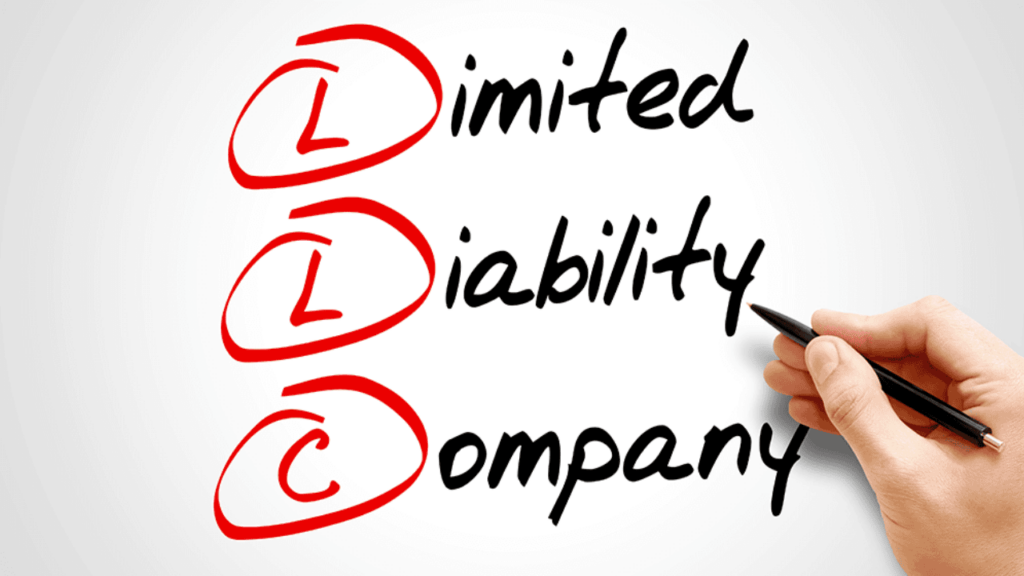
Benefits of Having an EIN for Your LLC
Obtaining an EIN for your LLC offers numerous advantages, even in situations where it might not be legally required. These benefits extend beyond simply fulfilling tax obligations and can significantly impact the operational efficiency, credibility, and growth potential of your business. In this section, we will explore the key benefits of having an EIN for your LLC.
1. Simplifies Tax Reporting and Compliance
An EIN is essential for managing and filing your business taxes efficiently. Here’s how it helps:
- Tax Filing and Reporting: The IRS requires an EIN for LLCs that have employees, file excise taxes, or are taxed as corporations or partnerships. Even if your LLC is a single-member entity taxed as a sole proprietorship, an EIN can simplify the process of filing taxes. It allows you to keep your personal Social Security Number (SSN) private while ensuring that your business’s tax obligations are met.
- Employment Taxes: If you hire employees, an EIN is mandatory for reporting employment taxes, including Social Security, Medicare, and federal income tax withholding. This helps in streamlining payroll processes and ensures compliance with IRS regulations.
- Ease of Tax Filings for Multi-member LLCs: For multi-member LLCs taxed as partnerships, an EIN is necessary for filing the partnership’s federal tax return (Form 1065) and for distributing income to members.
2. Protects Personal Information and Enhances Privacy
Using an EIN instead of your SSN for business activities provides an added layer of privacy and security:
- Reduced Risk of Identity Theft: By using an EIN on forms, documents, and when interacting with clients or vendors, you minimize the exposure of your SSN, reducing the risk of identity theft. This is particularly important when you’re required to provide tax identification information to multiple parties.
- Professionalism and Credibility: Using an EIN in place of your SSN can make your business appear more professional and established. It signals to others that your LLC is a legitimate, organized entity, which can build trust and credibility with potential clients, partners, and lenders.
3. Facilitates Business Banking and Financial Management
Having an EIN is often required to open a business bank account, which is essential for proper financial management:
- Separation of Personal and Business Finances: One of the primary benefits of forming an LLC is the protection of personal assets from business liabilities. To maintain this protection, it’s crucial to keep your personal and business finances separate. An EIN allows you to open a business bank account, making it easier to manage your business finances independently of your personal accounts.
- Streamlined Accounting and Record-Keeping: With a business bank account tied to your EIN, it’s simpler to track business income and expenses. This makes accounting more straightforward, helps with budgeting, and ensures accurate record-keeping for tax purposes.
4. Builds Business Credit
An EIN is a key component in establishing and building business credit, which is separate from your personal credit:
- Establishing Business Credit: Your EIN is used by credit bureaus to track the credit history of your LLC. Building a strong business credit profile is crucial if you plan to apply for loans, credit lines, or business credit cards. A solid business credit score can lead to better financing terms and lower interest rates.
- Access to Financing: With a good business credit score, your LLC may have easier access to financing options. This can be critical for growth, whether you’re looking to expand operations, purchase new equipment, or manage cash flow during slow periods.
5. Prepares Your Business for Growth and Expansion
As your business grows, having an EIN already in place can facilitate various aspects of expansion:
- Hiring Employees: If you plan to hire employees in the future, having an EIN will simplify the process of onboarding and payroll management. It ensures that you’re ready to comply with employment tax obligations as soon as you start hiring.
- Adding Members or Partners: If your LLC expands by adding new members or partners, an EIN is necessary for filing partnership returns and distributing income appropriately.
- Expanding Operations: An EIN is often required when applying for business licenses, permits, or registrations in new jurisdictions. If your business grows beyond its initial location, having an EIN will streamline the process of meeting local requirements.
Key Takeaways:
- An EIN simplifies tax reporting, enhances privacy, and protects personal information.
- It facilitates opening a business bank account, helps maintain financial separation, and supports proper accounting.
- Building business credit with an EIN can improve access to financing and prepare your LLC for growth and expansion.
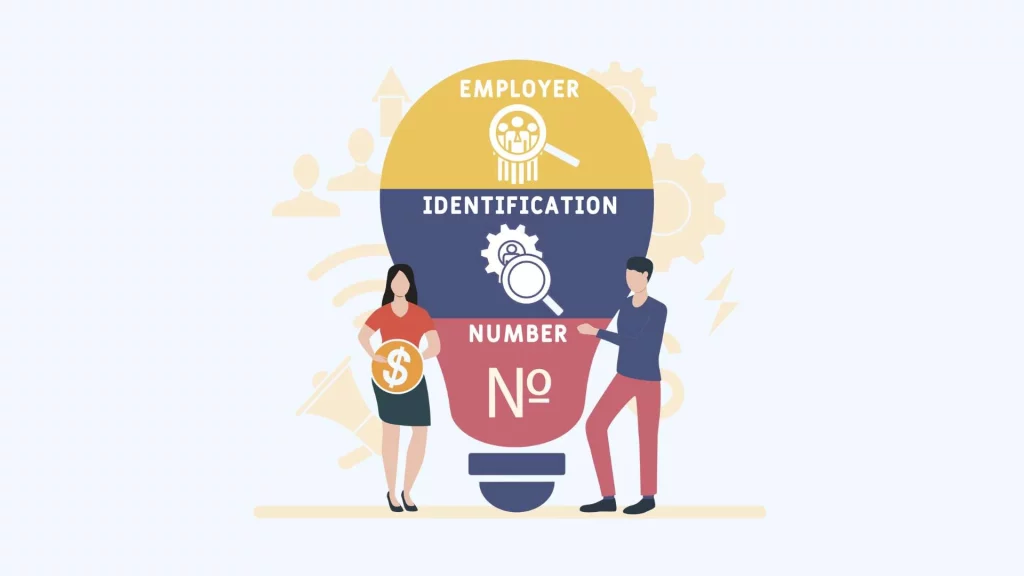
How to Apply for an EIN for Your LLC
Applying for an EIN is a straightforward process, and the IRS offers several convenient ways to obtain one. Whether you’re a new business owner or restructuring an existing entity, understanding how to apply for an EIN is essential. In this section, we’ll guide you through the steps involved in applying for an EIN, along with some important considerations to keep in mind.
1. Prepare the Necessary Information
Before you begin the application process, make sure you have all the required information at hand. Here’s what you’ll need:
- Legal Name of the LLC: The official name of your LLC as registered with your state.
- LLC Formation Date: The date your LLC was officially formed.
- State of Formation: The state where your LLC was established.
- Principal Business Address: The primary address where your business operates.
- Responsible Party: The individual who controls, manages, or directs the LLC and its assets. This person’s SSN or ITIN (Individual Taxpayer Identification Number) will be required.
- Type of Business Entity: Confirm that your business entity is an LLC.
- Number of Members: The number of members (owners) in your LLC.
2. Choose Your Application Method
The IRS offers several methods for applying for an EIN. You can choose the one that best suits your needs:
- Online Application:
- The most popular and fastest method is applying online through the IRS website. The online application is available for businesses in the United States and U.S. Territories.
- Step-by-Step Process:
- Visit the IRS EIN application page.
- Click “Apply Online Now” and follow the instructions.
- The application will guide you through a series of questions, and you’ll receive your EIN immediately upon completion.
- Important Note: The online application is available only during specific hours (usually Monday to Friday), and you must complete the application in one session as there’s no option to save and return later.
- Mail Application:
- You can also apply for an EIN by mailing Form SS-4, “Application for Employer Identification Number,” to the IRS.
- Step-by-Step Process:
- Download and complete Form SS-4 from the IRS website.
- Mail the completed form to the appropriate IRS address based on your location (listed on the form’s instructions).
- You’ll receive your EIN by mail in about four weeks.
- Fax Application:
- If you prefer a quicker alternative to mail, you can fax your completed Form SS-4 to the IRS.
- Step-by-Step Process:
- Complete Form SS-4.
- Fax it to the IRS at the fax number listed in the form’s instructions.
- You’ll receive your EIN by return fax within four business days.
- Telephone Application (for International Applicants):
- If you’re an international applicant without a legal residence in the United States, you can apply for an EIN by calling the IRS at 1-267-941-1099 (not a toll-free number).
- Step-by-Step Process:
- Have your completed Form SS-4 ready before you call.
- An IRS representative will assist you with the application process over the phone.
- You’ll receive your EIN immediately upon completion of the call.
3. Understand the Application Timeline
The time it takes to receive your EIN varies depending on the application method:
- Online Application: Immediate issuance of EIN.
- Mail Application: Typically 4 weeks.
- Fax Application: Approximately 4 business days.
- Telephone Application (International): Immediate issuance during the call.
4. Save Your EIN Confirmation Notice
After you receive your EIN, the IRS will send a confirmation notice. If you applied online, you can download and print this notice immediately. If you applied by mail or fax, the notice will be sent to you by mail.
Why This Notice is Important:
- The EIN confirmation notice serves as proof of your EIN assignment.
- You’ll need it when opening a business bank account, applying for licenses and permits, or filing taxes.
- Keep this document in a safe place as you may need to refer to it in the future.
5. Notify Relevant Parties
Once you have your EIN, it’s important to update your records and notify any relevant parties:
- Banking: Provide your EIN to your bank if you’re opening a new business account or updating an existing account.
- Vendors and Clients: If your EIN is needed for tax reporting purposes, make sure to share it with any vendors or clients who require it.
- State and Local Agencies: Some states require businesses to provide an EIN when applying for state licenses, permits, or registrations. Ensure all necessary agencies are informed of your EIN.
Common Mistakes to Avoid
When applying for an EIN, be mindful of the following common mistakes:
- Incorrect Information: Double-check all the details you provide on the application. Incorrect information can lead to delays or the need to reapply.
- Applying for Multiple EINs: If your LLC only has one tax entity, you should not apply for multiple EINs. Each entity only needs one EIN.
- Misidentifying the Responsible Party: Ensure that the responsible party listed on the application is the individual who truly controls and manages the LLC.
Key Takeaways:
- Applying for an EIN is a straightforward process, with multiple methods available to suit your needs.
- Be prepared with all the necessary information before you start the application.
- Once you receive your EIN, keep the confirmation notice safe and update all relevant parties.
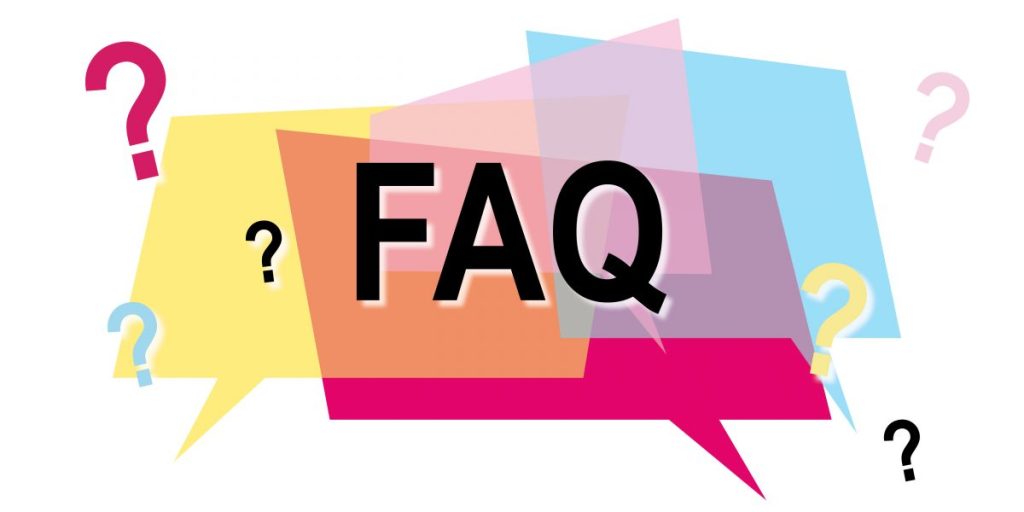
FAQs About EINs and LLCs
Understanding the relationship between EINs and LLCs can raise several questions, especially for new business owners. In this section, we’ll address some of the most frequently asked questions to clarify common concerns and provide additional insights.
1. Is an EIN the Same as a Tax ID Number?
Yes, an EIN (Employer Identification Number) is a type of Tax Identification Number (TIN). However, it’s important to note that the term “Tax ID” can also refer to other types of identification numbers, such as a Social Security Number (SSN) or an Individual Taxpayer Identification Number (ITIN). Here’s a breakdown:
- EIN (Employer Identification Number): Used by businesses for tax filing and reporting purposes. It is also known as a Federal Tax ID Number.
- SSN (Social Security Number): Primarily used by individuals for personal tax filings and other identification purposes.
- ITIN (Individual Taxpayer Identification Number): Issued to individuals who need a tax identification number but are not eligible for an SSN (e.g., non-residents).
2. Can a Single-Member LLC Get an EIN?
Yes, a single-member LLC can and often should obtain an EIN. Although a single-member LLC can file taxes using the owner’s SSN, obtaining an EIN is advisable for several reasons:
- Privacy: Using an EIN instead of your SSN helps protect your personal information when dealing with vendors, clients, and financial institutions.
- Business Banking: Most banks require an EIN to open a business bank account.
- Future Growth: If your single-member LLC expands, hires employees, or brings in additional members, an EIN will be necessary.
3. What Happens If I Lose My EIN?
If you lose your EIN, you can retrieve it by following these steps:
- Check Your Records: Look for the confirmation notice you received from the IRS when you were issued the EIN. This is the quickest way to retrieve your EIN.
- Review Previous Filings: Your EIN may also be listed on previously filed tax returns, bank statements, or other official documents related to your LLC.
- Contact the IRS: If you’re unable to locate your EIN through your records, you can call the IRS Business & Specialty Tax Line at 800-829-4933. Be prepared to provide identifying information about your LLC to verify your identity.
4. Do I Need a New EIN If I Change My LLC’s Name or Structure?
Whether you need a new EIN depends on the nature of the changes to your LLC:
- Name Change: If your LLC changes its name but remains the same entity (same members, tax structure, etc.), you do not need a new EIN. You should, however, report the name change to the IRS.
- Change in Structure: If your LLC undergoes a significant change in structure, such as converting from a single-member LLC to a multi-member LLC, or if it changes its tax classification (e.g., from being taxed as a sole proprietorship to a corporation), you may need a new EIN. It’s advisable to consult the IRS or a tax professional to determine if a new EIN is necessary.
5. Can I Use One EIN for Multiple Businesses?
No, generally, each LLC or business entity requires its own EIN. An EIN is issued to a specific business entity for tax and identification purposes. Using one EIN for multiple LLCs or businesses can create confusion and complications with the IRS, potentially leading to issues with tax filings and compliance.
- Exceptions: If you have a parent LLC with several branches or divisions, each operating under the same LLC umbrella, you may use one EIN. However, if each business operates as a separate LLC or entity, each will need its own EIN.
6. What Are the Penalties for Not Obtaining an EIN When Required?
If your LLC is required to have an EIN and you fail to obtain one, there can be several consequences:
- Tax Penalties: You may incur penalties for failing to file tax returns or make required payments on time if you don’t have an EIN when it’s required for those purposes.
- Delayed Operations: Without an EIN, you may face delays in opening a business bank account, applying for business licenses, or obtaining financing, which can hinder your business operations.
- Legal Compliance Issues: Non-compliance with federal or state regulations due to the absence of an EIN can lead to fines, penalties, or legal issues.
7. How Do I Cancel an EIN If My LLC Closes?
If your LLC closes and you no longer need your EIN, the IRS does not “cancel” or “reassign” EINs. However, you can inform the IRS that you no longer need the EIN:
- Send a Letter to the IRS: Write a letter to the IRS indicating that you wish to close your business account. Include the complete legal name of the LLC, EIN, and the reason for closure.
- File Final Tax Returns: Ensure that all required final tax returns are filed before closing the account.
Key Takeaways:
- An EIN is a specific type of Tax ID Number, essential for LLCs in various situations.
- A single-member LLC can benefit from having an EIN, even if not legally required.
- If you lose your EIN, you can retrieve it through IRS contact or your records.
- Significant changes to your LLC’s structure may require a new EIN.
- Each LLC or business entity typically requires its own EIN.
- Failing to obtain an EIN when required can lead to penalties and delays.
Conclusion
Obtaining an EIN (Employer Identification Number) for your LLC is a crucial step in establishing your business identity. While it might seem like just another administrative task, the EIN serves multiple important purposes that can significantly impact the success and smooth operation of your business. Here’s why getting an EIN for your LLC is essential:


